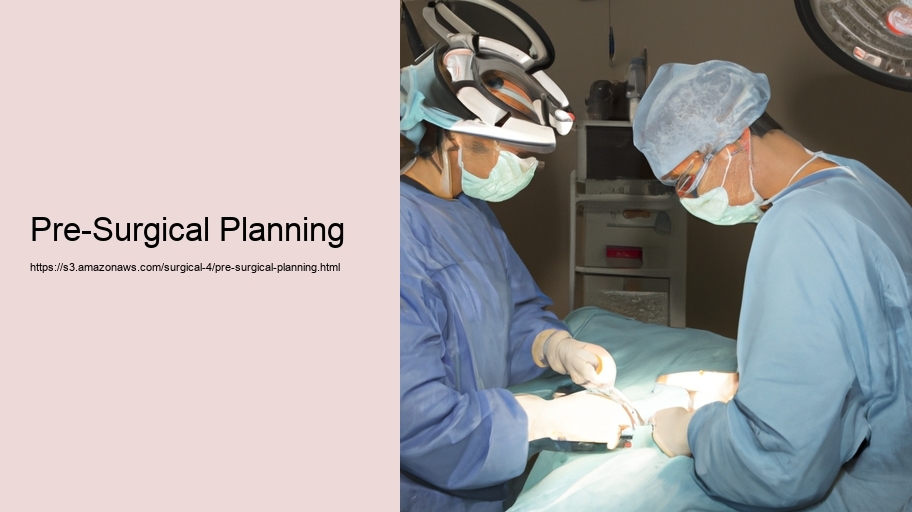Pre-surgical planning represents a pivotal phase in the journey of patient care, particularly in the context of surgical interventions. This meticulous process involves a series of steps and considerations that surgeons, along with their multidisciplinary teams, undertake to ensure the best possible outcomes for patients undergoing surgery. The significance of pre-surgical planning cannot be overstated, as it not only enhances the likelihood of a successful procedure but also minimizes the risks associated with surgical interventions.
The initial stage of pre-surgical planning often begins with a comprehensive evaluation of the patient's medical history. This review is crucial as it provides the surgical team with insights into any existing medical conditions, previous surgeries, allergies, and medications that could influence the course of both the surgery and the patient's recovery. Understanding these factors allows the team to tailor the surgical approach to the individual needs of the patient, ensuring that any potential complications are anticipated and addressed beforehand.
Following the review of medical history, the physical examination of the patient is the next essential step. This examination often includes diagnostic imaging such as X-rays, MRI scans, CT scans, or ultrasounds, which offer a detailed visualization of the area to be operated on. These images serve as a roadmap for the surgeons, enabling them to identify the exact location of the pathology, understand the anatomical relationships, and plan the surgical approach with precision.
The role of technology in pre-surgical planning has been transformative. Advanced software now allows for 3D modeling of a patient's anatomy, providing surgeons with the ability to simulate various surgical techniques and select the most appropriate one for the case at hand. This level of detail empowers surgeons to anticipate potential obstacles and devise strategies to overcome them even before making the first incision.
In addition to the technical aspects, pre-surgical planning also addresses the logistical components of surgery. This includes scheduling the procedure, ensuring that the necessary surgical instruments and equipment are available, and coordinating with the operating room staff. Effective communication among the surgical team is paramount during this phase to confirm that everyone is aware of their roles and the specific details of the case.
Patient education and consent are other vital elements of pre-surgical planning. It is important that patients are fully informed about the nature of the surgery, the expected outcomes, the risks involved, and the recovery process. Obtaining informed consent signifies that the patient understands this information and agrees to proceed with the surgery. This dialogue also provides an opportunity for patients to ask questions and express any concerns they may have, fostering a trusting relationship between the patient and the surgical team.
Moreover, pre-surgical planning takes into consideration the postoperative phase, anticipating the needs of the patient after the surgery. This includes arranging for postoperative care, which may involve physical therapy, follow-up appointments, and home care instructions. By planning for these aspects in advance, the surgical team can ensure a smooth transition from the operating room to the recovery phase, ultimately contributing to a better and faster healing process.
In conclusion, pre-surgical planning is an intricate and essential part of the surgical process. It is a collaborative effort that requires attention to detail, the integration of technology, and a patient-centered approach. By investing time and resources into thorough pre-surgical planning, healthcare professionals can significantly improve surgical outcomes, reduce the likelihood of complications, and enhance the overall experience for patients. As medical technology and techniques continue to evolve, the scope and sophistication of pre-surgical planning are bound to expand, further elevating the standard of care for surgical patients.
